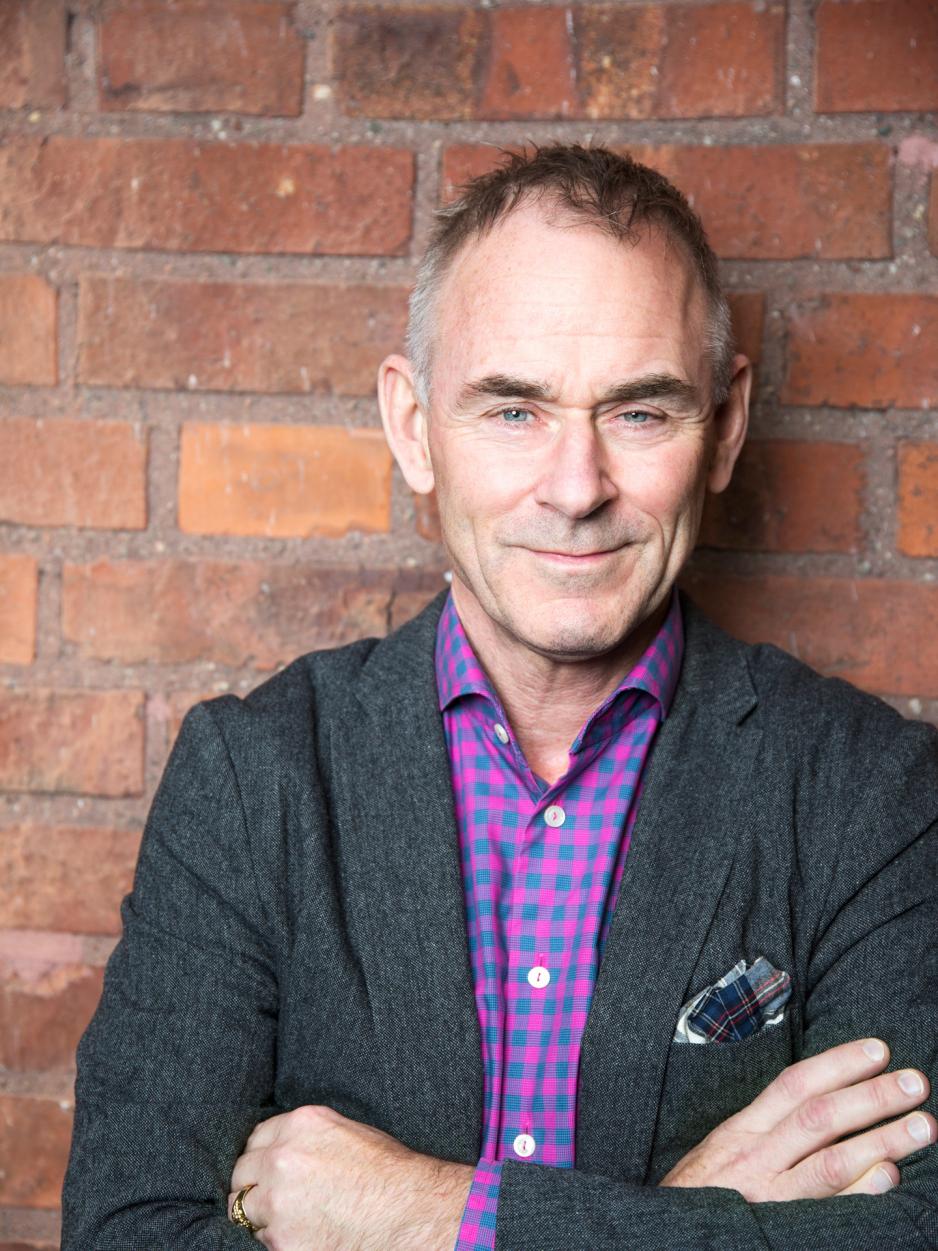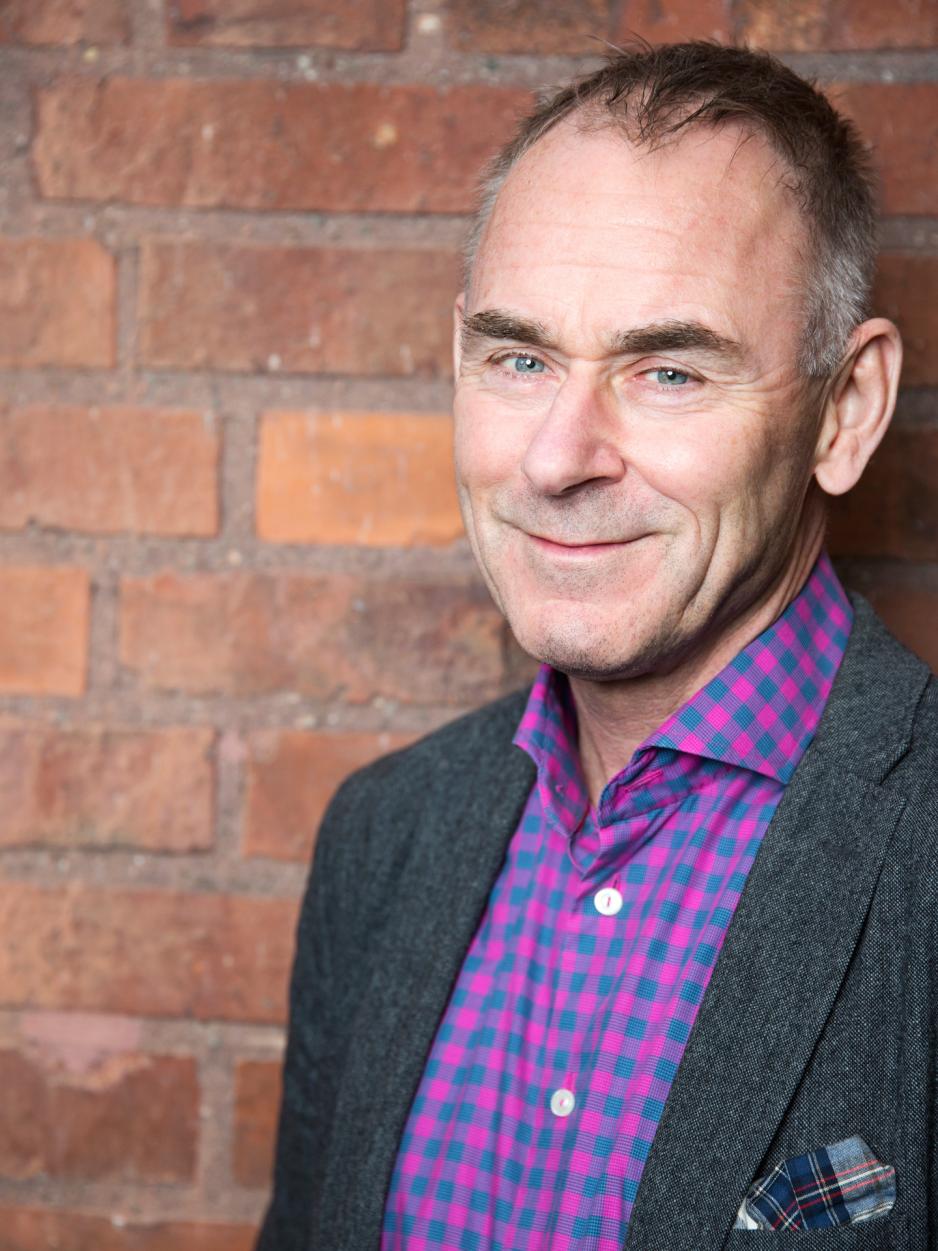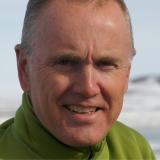Swedish Climate Historian: "Two of the Most Unfortunate Global Phenomena Appear To Be On the Verge of A Paradoxical Collision"

The 62 year-old Swedish idea and climate historian Sverker Sjölin, professor at the Royal Institute of Technology in Stockholm, has been concerned with the connection between climate and populism for years. (Photo: KTH/Royal Institute of Technology)
An introverted nationalist and populist wind is blowing across the world at exactly the same time as the climate crisis requires well-coordinated international cooperation. Is there a connection? And how is this paradox managed?
STOCKHOLM: Two of the most unfortunate global phenomena appear to be on the verge of a paradoxical collision. On the one hand is the climate crisis, which requires well-coordinated international efforts.
On the other side there is the multi-headed opposite of that crisis; bold nationalist and populist movements, governments, parties and others who evade or directly undermine international agreements and initiatives created in the struggle against global warming.
Alarm signals from climate scientists, meteorologists, the UN’s climate panel and others with knowledge and insight are sent out with increasingly short intervals. According to the most recent reports, Svalbard can look forward to temperatures increasing by ten degrees.
The polar ice cap was smaller last December than it has been through nearly all past measurings. Small communities on the coast of Alaska are gradually washed out at sea due to the sea ice’s no longer protecting the coast from the forces of the ocean. In Northern Russia, roads, oil pipelines and housing blocks of flats are collapsing because the permafrost is thawing.
The Arctic leads on, though the trend is global. In his book “The Uninhabitable Earth – Life After Warming”, published in February, editor David Wallace-Wells of the New York Magazine summarizes some twenty professional analyses and research results in a gloomy tour-de-force through floods, flows of refugees and famine that climate changes will cause if we continue our ‘business as usual’.
“32 countries, from Haiti to the Philippines, India to Cambodia, who are very dependent on farming, face extreme risk of conflict and civilian unrest due to climate over the next 30 years” he writes.
At the same time, Canadian professor Jama Saghir explained during the annual climate conference in the Hague how IS and other terrorist groups recruit among poor farmers in the Middle East, much supported by a draught that has lasted for a decade and driven people away from the houses and lands – while simultaneously, populism and nationalism has been growing in Europe and the USA.
Climate crisis intensifies populism
The 62-year old Swedish idea and climate historian Sverker Sörlin, professor at the Royal Institute of Technology (KTH) in Stockholm, has been concerned with the connection between climate and populism for years. He is a member of the Swedish government’s advisory council for climate politics and can boast international recognition for his exploring the historic roots of environmental and climate thinking.
In his 2018 book “Competing Arctic Futures”, he warned against the temptation to reducing climate change to only a natural science phenomenon.
When we meet him at his own research department on the fourth floor, with a view towards a tall, blue winter sky across Stockholm, he describes the ice in the Arctic as “a social institution”.
- We are the ones creating the problems, not melting ice, monsoon rains or the draught in the Middle East, he says.
Sörlin frequently writes debate texts in the Swedish press as well as international academic journals in order to underline his argument:
- Climate changes require classic politics based on knowledge and values. The relationship to democracy is the most important factor in the struggle against global warming. Science and technology alone will never suffice, he argues.
As a the keynote speaker at the 2017 Nordic Historians’ meeting in Aalborg, Denmark he talked about the need for a new kind of knowledge production in order to be able to meet the complex challenges of the present times.
- The advance of populism is strengthened by the climate crisis, however, the climate also coincides with increasing local and global inequality, which is the reverse side of the globalization medal; the shock of the financial crisis of 2008-2009 and the increasing refugee and migration flows that culminated in the European refugee crisis in 2015.
- The entire geopolitical situation is affected by people’s being more nervous than before. Life is uncertain, and what you should do is exactly that which you do not want to do. So you end up doing what you should not do and do not care about the rest, he says.
- Earlier, many asked us to see the world as coordinated and open, as a place in which we could increase our welfare if we cooperated better. We saw Europe as an open market where everyone should be free to move around. However, we have abandoned that kind of collective thinking again, because the threats are nearer to home. Now, it is mostly about saving yourself, he says.
Resource nationalism
In his latest book “Anthropocene – An Essay About the Age of Man” he refers to governments such as the Polish, Australian, Indian, American, Russian and Norwegian as “resource nationalistic” and “resource populistic”, who lead the globe into unchartered and dangerous territory against their better knowledge.
- I ask myself how this paradox can continue to grow. Are the nationalist and populist political currents fed on the warning cries about global warming? How has ‘America first’ become the answer to millions of Americans and Brexit for the Brits? How can president Victor Orban in Hungary gain increasing popularity among the people for his populist, EU- and immigration-hostile political project, which does not answer global warming? How can the Polish government, which steadfastly rejects major European climate initiatives, mobilize millions? And how did the yellow vests in France become a powerful political movement in their protest against climate taxes on fuel?
How has ‘America first’ become the answer to millions of Americans and Brexit for the Brits?
- It has much to do with the fear of losing, Sverker Sjölin believes and expands:
- A resource politic has arisen that goes hand in hand with nationalism in an ideological conglomerate. You see people suddenly waking up and shouting “We vote Trump, we vote coal”.
- In the Arctic, one can point at Russia and Norway, who both depend on fossil raw materials like oil and gas. They like to enter the world stage with a message that appears different, but is all tied to their natural resources. Russia among those opposing change the most. Norway is more rhetorical, though Norwegians have proven themselves rather slow in practice. They have consistently sought solutions that allows them to continue fossil fuels, and that is not unique. Many countries have build up national stories about their natural resources, he says.
A PhD student from Sjölin’s research department spent a year in Schleswig, Poland to study the coalmining society. People were browned by coal, following their having centered their lives around coal for generations. They work in the coal mines, heat their homes using coal ovens and travel to sanatoriums and clinics when it gets too bad.
- Poland displays full-grown resource nationalism, Sörlin says.
- Everyone knows perfectly well that coal is damaging for them, however, if you try to take away their coal you will see a desperation arising that resembles that of a child when its toy is taken away. This desperation is what the Polish government uses to lead a clear resource-nationalistic policy that makes coal the core of people’s security and welfare. When the Polish government then presents proposals that the rest of Europe consider reactionary and out of touch with reality, it sounds like sweet music to Polish ears because it is tied to tradition and culture. Climate changes, energy and natural resources are linked to politics and religion. We have seen it in history before, though global warming makes it far more obvious.
Nostalgic response
In his book about the “anthropic”, the idea of mankind as the world’s dominating geological force, Sverker Sörlin places these paradoxes in a historical context:
“The nationalist and populist rebellions we have seen in Europe and North America recently can be interpreted as an early and basically nostalgic response to the new state. They signal the desire to return to classical modernity, where nature is referred to as a quiet and passive supplier of earthly gifts, which men are in their full right to extract from Mother Earth. It is basically a safe distribution between the earthly and the human that minimizes man’s and society’s requirement about adjusting to the conditions of the earth”, he writes.
Poland displays full-grown resource nationalism. Everyone knows perfectly well that coal is damaging for them, however, if you try to take away their coal you will see a desperation arising that resembles that of a child when its toy is taken away.
Time is turned upside down. The old faith in the power of enlightenment and technology no longer has the strength to nurture the idea about a permanently growing wealth and while melancholy spreads its net, the past is reunited with its glory and hope about the rebirth of the past.
- This tendency accelerates with climate changes because it is becoming increasingly obvious that we have to stop doing the things we have used to do before. Can we for instance eat meat? For people who consider eating meat a sign of their welfare, that begs the question “Is my life poorer now?”. And yes, it may immediately appear so, Sörlin says.
The climate changes’ demand for deprivation and change makes a new norm out of what was previously only necessary in cases of emergency:
- A condition that we have hitherto only had in situations of deep emergencies of wars is today devouring us with low intensity, and the reaction is a populistic and nihilistic protest: No, that cannot be right! You are standing on the town square claiming the sun is shining even with the rain pouring down, says Sverker Sörlin.
#vimåstaprata - #wemusttalk
Walking through central Stockholm on my way to the interview, I walk past the broad communal duck feeding facility in the canal near the palace. Grey ducks jump between ice floes, men walk along the shores wearing coats and polished shoes. Stockholm is radiating with peaceful bourgeoisie, though everything isn’t as it used to be.
Sverker Sörlin writes petitions in newspapers about Swedish climate denial, and in 2018 he co-founded a new movement in defence of democracy: #vimåstaprata [#wemusttalk].
“We are witnessing disturbing parallels to history where democracy was soon replaced by suppression”, he and the other founders wrote in the Svenska Dagbladet daily.
In August, he used the Dagens Nyheter daily to encourage the Swedish parliament, Riksdagen, to ban the neo-Nazi organization ‘Nordiska Motståndsrörelsen’ [Nordic Resistance Movement].
But is exclusion and marginalization the answer to populism? I ask.
The immigration-hostile and partially climate-denying party Sverigedemokratene (SD) received 17.6 percent of the votes at the last parliamentary election in Sweden. That resulted in a four month- long political crisis in which all the other parties refused to cooperate with SD. Does not that just breed more frustration and populism?
Sörlin rejects the premise. The four months it took for the conservative alliance in parliament to break down and for a majority to support social democratic Stefan Löfven as prime minister goes to reflect the fact that SD has parliamentary influence, he argues.
- Besides, their core issues, in particular immigration policies, are openly debated in Sweden today, he argues.
Sörlin’s fear of a weakening of democracy in Sweden is rooted in other causes. In the Anthropocene book, he describes how the age of climate crisis raises new questions about morals, ethics and not to mention emotions all over Europe.
“The nationalist and populist movements have a far richer and more attractive language than what was used in the now-empty story about international cooperation and globalization, which creates more wealth and growth”, he writes.
- Feelings have all of a sudden become a political factor. The emotional registry of the traditional welfare state has been very limited. We have talked about a new car, a new house, better infrastructure. No-one can claim that that is a particularly articulate presentation of the project. Terms like ‘performances’, ‘progress’ or ‘growth’ are used while emotions are absent. Now, everything is about ‘loss’ and language in loss is far more connected to feelings. Words like ‘deprivation’, ‘mourning’ and ‘death’ are used, and the blind and brutal response to challenges has resounded with people. It engages them. And these are the feelings that make people put on yellow vests and protest, he says.

Sverker Sörlin, professor at the Royal Institute of Technology in Stockholm sees hope in young people, in the 16 year-old Greta Thunberg who skips school to object to politicians’ vague climate efforts, and who also inspired young people in other countries.
We have talked about a new car, a new house, better infrastructure. No-one can claim that that is a particularly articulate presentation of the project.
Civilian disunity
He sees hope in young people, in the 16 year-old Greta Thunberg who skips school to object to politicians’ vague climate efforts, and who also inspired young people in other countries.
He enjoys the growing distrust in the infallibility of market powers and the 2015 Paris Accord, though he shifts back and forth between optimism and pessimism.
He is primarily optimistic in his analysis of the historic development that through the past centuries has provided us with institutions such as freedom of speech, social rights and democracy. He expects this development to continue – with the relationship between man and nature increasingly at the center of things, though he speaks about a “generational” time:
- A new understanding of the planet, a new Weltanschauung, does not come just from snapping your fingers. The whole society needs to be changed, and the enormous power of populism is exactly down to the fact that many do not want such a new world view, he says and closes:
- In the debate about Europe’s future, it is important to understand that we are talking about incredibly strong polarization, a civilian disunity. Just look at the debate in the USA, and see how high the temperature has become in public debate. There is an outright hatred between people in the country, which until recently managed political disagreements through regular conversations. The populist reaction is largely due to “the privileged white man” of the West still walking around believing he can live in yesterday’s world. He has not acknowledged yet that tomorrow’s world will be much better – or at least that it will be a real alternative.
“The privileged white man” of the West has not yet acknowledged yet that tomorrow’s world will be much better – or at least that it will be a real alternative.
This article was originally published in Norwegian and has been translated by HNN's Elisabeth Bergquist.

